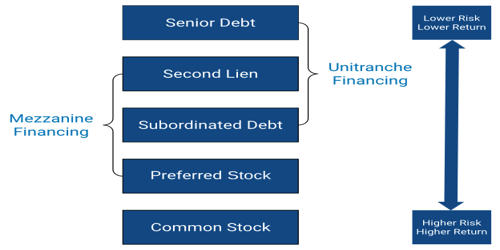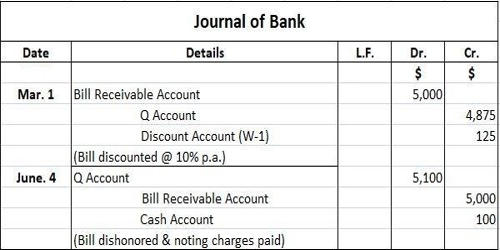Mezzanine capital is a form of financing that is part debt and part equity. In finance, mezzanine capital is any subordinated debt or preferred equity instrument that represents a claim on a company’s assets which is senior only to that of the common shares. It incorporates equity-based options, such as warrants, with a lower-priority debt to provide flexible long term capital for use in buy-outs or growth financings. Mezzanine financings can be structured either as debt or preferred stock.
Mezzanine capital is often a more expensive financing source for a company than secured debt or senior debt. It is a kind of financing that has both features of debt and equity financing that provides lenders the right to convert its loan into equity in case of a default. The higher cost of capital associated with mezzanine financings is the result of its being an unsecured, subordinated obligation in a company’s capital structure. Frequently unsecured, it usually bears interest at a higher rate than secured loans and often gives the lender a stake in the equity of the company.
Mezzanine financing is a type of capital that has some of the characteristics of bank loans and some of the owners’ share capital. Additionally, mezzanine financings, which are usually private placements, are often used by smaller companies and may involve greater overall levels of leverage than issues in the high-yield market; they thus involve additional risk. In compensation for the increased risk, mezzanine debt holders require a higher return for their investment than secured or more senior lenders. It is a capital resource that sits between (less risky) senior debt and (higher risk) equity that has both debt and equity features.
Advantages
- Can get loans easily: Mezzanine funds are easy to get and one doesn’t need to provide any asset as a mortgage.
- The structure of the loan is quite flexible: The borrowers take loans from multiple sources and as a result, the amount from each is smaller.
- Interest on the mezzanine debt is tax-deductible: This the main advantage of the Mezzanine fund and one of the reasons for which small business owners go for mezzanine debt is that the interest they pay on the debt reduces the tax they need to pay to the government.
Disadvantages
- Restrictive covenants: Since the loans are unsecured, the lenders incorporate restrictive conditions on the borrowers like warrants, options of partial ownership, not to borrow additional loans from a lender, etc.
- High-interest rates: Since mezzanine loans are unsecured, the borrowers need to pay quite a high-interest rate and if you have not been earning half of what you intend to borrow, stay away from taking mezzanine loans.
Mezzanine capital is often used to extend the borrowing capacity of a company or a project in situations where more external financing is needed than what banks are willing or able to offer. It is often used to finance acquisitions, buyouts, and accelerated growth. Mezzanine financing is a hybrid between debt and equity. In multi-tiered financing of operation, for instance, the sources of money will be senior debt, senior subordinated debt, subordinated debt, mezzanine debt, and finally the owner’s own equity.
















